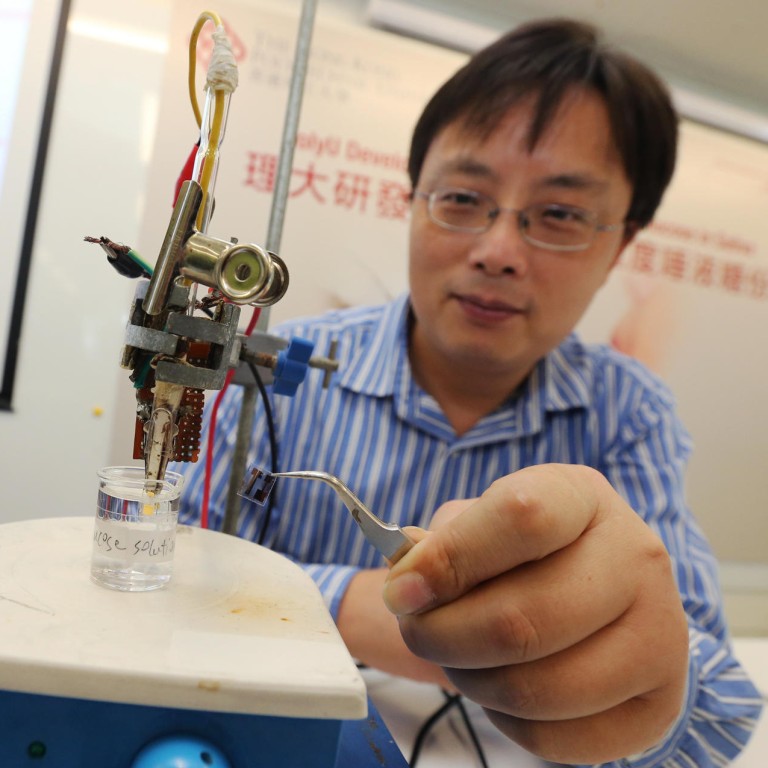
No more needles: Hong Kong researchers develop saliva tests for diabetics
Researchers develop glucose sensor that is 1,000 times more sensitive
Researchers at Polytechnic University have developed a painless alternative for diabetics to monitor their glucose levels - saliva tests.
They use a sensor that is 1,000 times more sensitive than the traditional blood test, which involves pricking the finger to collect a sample.
Just one drop of saliva is enough for the sensor chip to detect glucose levels according to changes in electrical current.
READ MORE: New drug cuts death rate in diabetics by treating their heart condition
"A higher level of glucose in saliva would lead to a greater change of current," said Dr Yan Feng, from the university's department of applied physics, one of the researchers behind the new technology.
"Saliva is more convenient and [the test] doesn't cause pain."
And it's not expensive - each chip costs around HK$3 to HK$5.
To put the sensitivity of the test in perspective, the proportion of glucose in saliva is similar to between 47kg and 140kg of glucose in a standard 2,500-cubic-metre swimming pool - the test can detect five grams of glucose sugar in the pool.
The exact accuracy rate of the test has yet to be determined as clinical trials have not been conducted on patients. But Yan said earlier studies showed a positive correlation of glucose between blood and saliva.
READ MORE: Hidden hazard: Why so many Asian Americans have diabetes but don’t even know it
"If there is higher level of glucose in blood, it is also higher in saliva," he said.
People with diabetes have elevated levels of blood sugar or glucose, often because the pancreas is not able to produce enough insulin, which helps glucose enter the body's cells.
Yan said the team had spent HK$1 million and worked for around five years to develop the prototype. It might take another five years to develop the technology and produce kits that patients could use at home in a way they now use glucose blood test meters.

